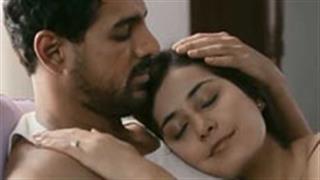Actor-filmmaker Farhan Akhtar believes the Central Board of Film Certification (CBFC) should speak up for filmmakers when movies such as "Madras Cafe" get caught in controversies despite being cleared by the board.
Even as John Abraham's "Madras Cafe" has been appreciated by the audiences, it has also invited protest from certain groups leading to a no show in Tamil Nadu.
Akhtar said it is upto CBFC "to defend our interests, to fight for our interests because we are responsible to them and they are responsible to us".
"I would hope that they will also stand up and speak in our favour in these matters," the 39-year-old said here Wednesday at the unveiling of the latest issue of Star Week magazine featuring him on the cover.
Farhan stressed that once the censor board gives a green signal to a movie, it must be allowed to be screened.
"My stand on this is very clear. Once the censor board, who represents the Ministry of Information and Broadcasting to us... once they have told us that we can go ahead and release our film, I feel we should be allowed to release our film, no matter where in the country, if the authority of the board applies in that state," Farhan said.
"It's unfortunate that films get caught up in the politics of our times," he added.
Shoojit Sircar-directed "Madras Cafe" had received a go ahead from the CBFC. However, theatre owners refrained from releasing it fearing protests from Tamil activists over its sensitive subject.
Set against the Sri Lankan civil war, the film also depicts scenes which resemble the 1991 assassination of former Indian prime minister Rajiv Gandhi. The film especially came under the scanner after Tamil activists alleged that it portrays the LTTE cadres as terrorists.
Censor board must stand up for filmmakers: Farhan Akhtar
Thursday, August 29, 2013 14:27 IST




















